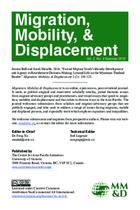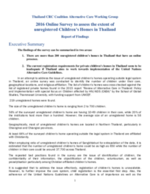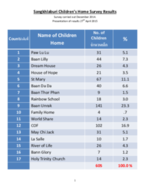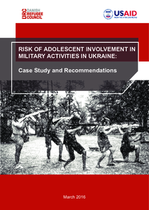Forced Migrant Youth’s Identity Development and Agency in Resettlement Decision-Making: Liminal Life on the Myanmar Thailand Border
This document is an article focusing on the experiences of forced migrant youth aged 12 to 17 from Myanmar who have grown up as temporary residents along the northwest border of Thailand.




